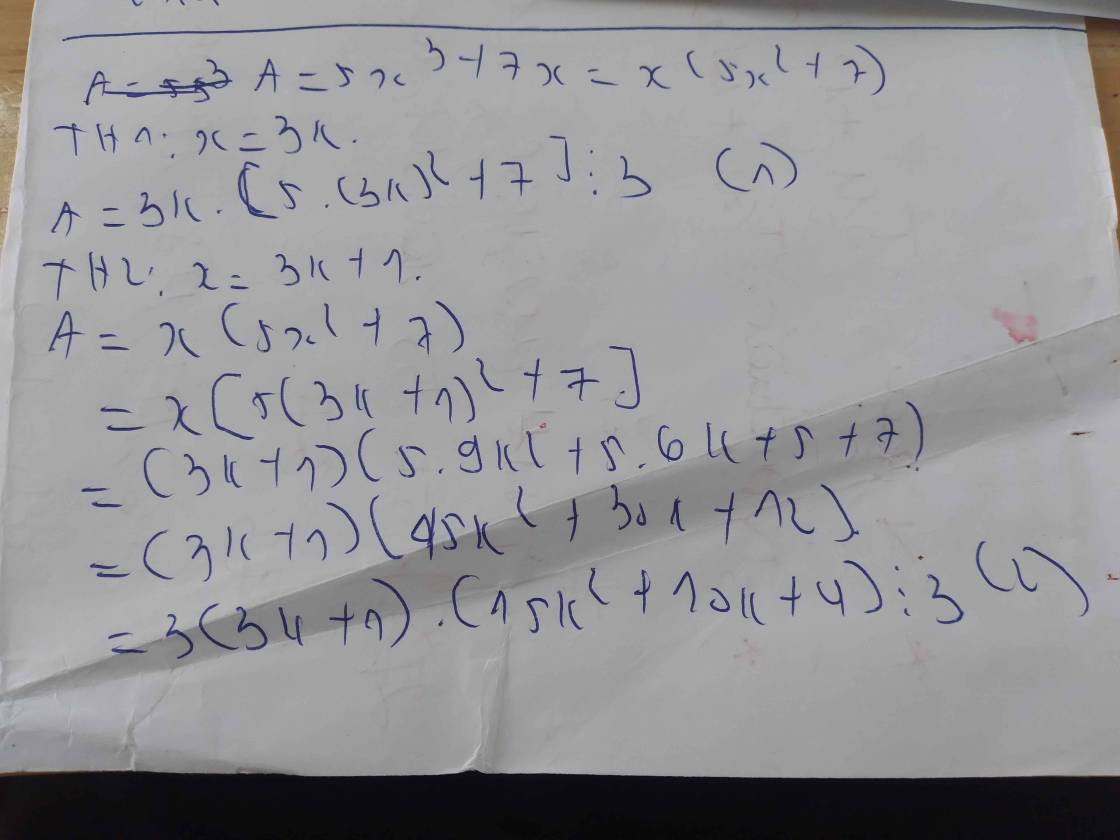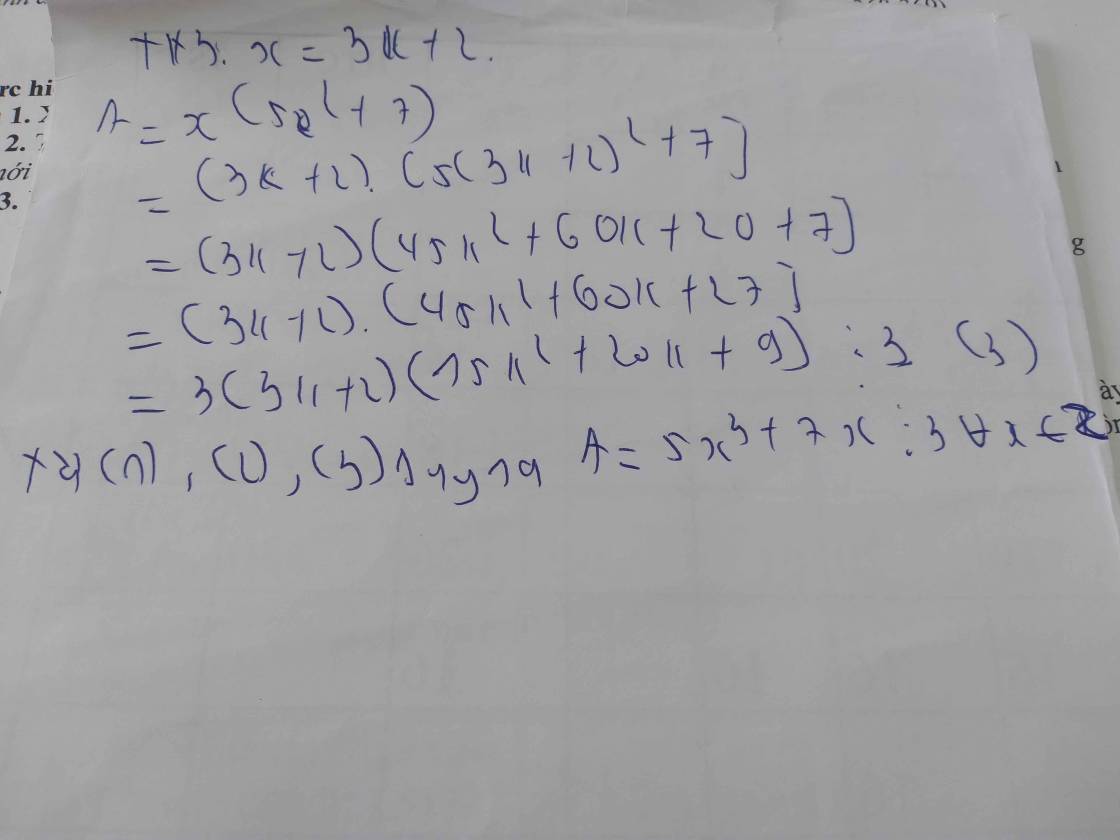
Hãy nhập câu hỏi của bạn vào đây, nếu là tài khoản VIP, bạn sẽ được ưu tiên trả lời.



\(f\left(x\right)=6x^3-7x^2-16x+m\)
Do \(f\left(x\right)\) chia hết \(2x-5\), theo định lý Bezout:
\(f\left(\dfrac{5}{2}\right)=0\Rightarrow6.\left(\dfrac{5}{2}\right)^3-7.\left(\dfrac{5}{2}\right)^2-16.\left(\dfrac{5}{2}\right)+m=0\)
\(\Rightarrow m=-10\)
Khi đó \(f\left(x\right)=6x^3-7x^2-16x-10\)
Số dư phép chia cho \(3x-2\):
\(f\left(\dfrac{2}{3}\right)=6.\left(\dfrac{2}{3}\right)^3-7.\left(\dfrac{2}{3}\right)^2-16.\left(\dfrac{2}{3}\right)-10=-22\)
f(x)=6x3−7x2−16x+m
Do �(�)f(x) chia hết 2�−52x−5, theo định lý Bezout:
�(52)=0⇒6.(52)3−7.(52)2−16.(52)+�=0f(25)=0⇒6.(25)3−7.(25)2−16.(25)+m=0
⇒�=−10⇒m=−10
Khi đó �(�)=6�3−7�2−16�−10f(x)=6x3−7x2−16x−10
Số dư phép chia cho 3�−23x−2:
�(23)=6.(23)3−7.(23)2−16.(23)−10=−22f(32)=6.(32)3−7.(32)2−16.(32)−10=−22

Theo đlí Bezu: \(r_1=P\left(2,3\right)=-1942,150242\);
\(r_2=-1843,310014\)
\(B=0,0\left(2012\right).r_1+3r_2=-5569,010012\)

đa thức đã cho có dạng f(x) =(x-1)(x-2)(x-3)+(2x+1)^3
Thủa mãn đầu điều kiện đầu bài:
f(x)=g(x).(3x-5)+m
f(x)=h(x).(5x+2)+n
f(x)=j(x).(7x-1)=p
f(5/3)=m; f(-2/5)=n ; f(1/7)=p
tự thay số nhé Đề ra lẻ quá không nhẩm được

Do \(f\left(x\right)\) có bậc 4 ,\(y\left(x\right)\) có bậc 2 nên đa thức thương\(Q\left(x\right)\) có bậc cao nhất là 2
Đặt \(Q\left(x\right)=6x^2+cx+d\)
có f(x)=\(6x^4-7x^3+ax^2+3x+2\)y(x).Q(x)=\(\left(x^2-x+b\right)\left(6x^2+cx+d\right)=6x^4+x^3\left(c-6\right)+x^2\left(a-c+6b\right)-x\left(a+bc\right)+bd\)
Đống nhất thức 2 vế ta được \(\hept{\begin{cases}6=6\\-7=c-6\\a=a-c+6b\end{cases},\hept{\begin{cases}3=-\left(a+bc\right)\\2=bd\end{cases}}}\)
giải hệ trên ta có\(\hept{\begin{cases}c=-1\\b=-\frac{1}{6}\\a=\frac{19}{6},d=-12\end{cases}}\)
Vậy a=19/6, b=-1/6

\(3x^3-7x^2+17x-5=3x^3-x^2-6x^2+2x+15x-5\)
\(=x^2\left(3x-1\right)-2x\left(3x-1\right)+5\left(3x-1\right)\)
\(=\left(3x-1\right)\left(x^2-2x+5\right)\)
\(x^3-x^2-4=x^3+x^2+2x-2x^2-2x-4\)
\(=x\left(x^2+x+2\right)=2\left(x^2+x+2\right)=\left(x-2\right)\left(x^2+x+2\right)\)

